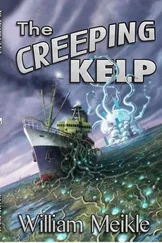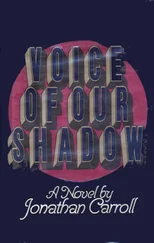It was a small, neat space, surprisingly pleasant, with white lace coverlets on the beds, and a vase of fresh lavender on the windowsill. We put our bags down and stood at the window, looking out over the green. You could hear the jangling of the iron charms on the doors of the distant cottages and smell the lavender in the air.
“You know something?” Holly said. “I’m glad it’s worked out like this. I’m pleased you’re here.”
“Well, if I wasn’t, you’d have to share rooms with one of the boys,” I said.
She gave a delicate little shudder and drew her coat elegantly around her. “True….But I didn’t just mean that. I’ve felt bad ever since you left. About you going, about the way it all ended back then. I felt responsible.”
“Oh, don’t you start!” I said. “ Everyone thinks I left because of you. And I really didn’t. If it was just about you, believe me, I would have stayed.” I gave her a stern glare.
Holly lifted her hands in a peaceable gesture. “There you go with that look again! I just mean it was the arguments we had that brought it to a head—that made you lose control.” She was referring to the Poltergeist I’d conjured up during our blazing fight at Aickmere’s department store, and she was quite correct—but that didn’t mean I enjoyed hearing her say it. My frown deepened. “Oh, you’re getting angry with me again,” Holly went on, “and I don’t think I’m doing anything wrong. All I’m saying—”
“It’s okay. I know what you’re saying.” I let my face relax. “Thanks for saying it.”
“And I hope you find the skull one day,” Holly added, after an unusually warm pause. “I know how important it is to you.”
I could have denied it. I probably should have. “Yeah,” I said. “I kind of miss having it around.”
“I can’t think why. It’s a horrible thing, and I don’t think it liked me.”
I chuckled. “Well, no, it really didn’t.”
“It made unpleasant faces whenever I went by.”
“That’s nothing. It actively encouraged me to murder you once or twice. But don’t worry, I’m not going to take up any of its suggestions, even the coat hanger one.”
Holly looked anxiously around the room. “The coat hanger one?”
“It was a kind of garrote thing, using hangers like those ones over there….Anyway, don’t worry about that. Let’s get settled in. Which bed do you want?”
“The one by the door.”
Not long afterward we went downstairs again. At the foot of the stairs was a flagstoned hallway, dominated by its ancient entrance door. An arch beyond opened into the pub, a low-ceilinged chamber with a sweet, melancholy smell of stale beer. Here a broad-chested man with a pale, pained face and slate-gray hair was drying glasses behind the bar. From his protruding ears, I guessed him to be Danny Skinner’s father, the owner of the inn. A wild-eyed old man sat in a corner by the fire. Otherwise, aside from the rest of our team, the place was empty. Lockwood, with Danny at his side, was ordering lemonades. Kipps and George stood glumly by, each with a subtly harried look.
I sat on a bar stool next to Lockwood. “I take it you took the cot,” I said.
He nodded. “Leader’s prerogative.”
“I didn’t sign up for this,” Kipps said. “Horrific phantoms, yes. Waking up next to Cubbins, no.”
“As soon as it gets dark we’re going to have to deal with the inn’s ghost.” George, too, spoke with deep feeling. “Then Kipps or I will be able to sleep in the storage closet downstairs. All the other Visitors can wait.”
Mr. Skinner, the innkeeper, nodded toward the arch. “Well, if you’re interested in our ghost, that’s where it happens, out in the hall. Glowing child, that’s what they say it is. The big door there’s where kids hear the knocking.”
“They’re making it up!” A shout made us turn. The old man by the fire was glaring at us madly. “It’s nothing but the wind! Trees knocking on the window! Too much cheese at night! Claptrap and baloney!” He took a sip of beer.
“That’s my grandpa,” Danny whispered. “Used to be vicar at St. Nestor’s Church, until he got too crazy. He’s too old to have ever seen a ghost, so he doesn’t believe in them— or in ghost-hunters, naturally. If he insults you, just ignore him.”
“Oh, we’ll suffer in silence. You’ve given us plenty of practice at that.” Lockwood was gazing out at the dark and quiet hallway. “Okay, we’ll look into this midnight visitor for you. So there’s no one else at the Old Sun Inn?”
“You’re our only guests.” The innkeeper shook his head sourly. “The Old Sun Inn… there’s an inappropriate name for you. If there’s a darker spot in all creation than Aldbury Castle, I wouldn’t like to see it. Come outside with me a moment.”
He flipped his dish towel over his shoulder, pushed the bar flap open, and limped out across the lobby, ignoring the cries of the old man for another glass of beer. In the garden the sun was drawing clear of the beech woods, and the sky was a cold, pale blue. Two children were playing far off, thrashing through the long grass on the green.
“Used to be kept mowed, this green did,” Mr. Skinner said, as we trooped outside behind him. “Nice and neat, it was; we had picnics, bands playing, and whatnot. Course, no one bothers with any of that anymore. The only communal activity now is when we gather to burn the clothes of the recently deceased. Never does any good, mind. More ghosts than people, Aldbury Castle has, and more being added every day.”
He pointed out across the grass. “There’s a headless lady who walks under the chestnut trees,” he said. “See where the shadows are darkest? That’s supposed to be her grave. That bit of stained ground? That was where the gallows were. We destroyed them years ago, but the children say a shape still lingers there—the ghost of a peddler hung from one of the trees after selling pies with rotten meat.”
“Bit severe,” George said, “but you can understand their annoyance. Anything else?”
“The church has its ghost, of course. Fellow who fell from the tower while fixing the lightning rod, they say. And see along there? Half the cottages on that side of the green have been abandoned for years; an influenza epidemic one hundred years ago left too many unquiet souls in them. Then there’s the duck pond. A teacher took her own life in it, twenty years ago. I remember that myself. Miss Bates, a sad and quiet woman, she was. Wouldn’t say boo to a goose. Found her in the center of the pond on a bright spring morning, long hair floating out like river weeds….”
“Oh, God, her spirit hasn’t got lots of hair, has it?” George said. “Long, lank, black hair? I can’t bear hairy ghosts. Or ones with tattoos.”
“George.”
“What?”
“Shush.”
“There’re dozens more. We’ve always been on the edge of things,” Mr. Skinner said, “where the barrier between this world and the next wears thin. Not surprising, really, given our history.”
“You mean the battlefield?” Lockwood asked. “Where was that, do you know?”
“Up Potter’s Lane, there, beyond the church. Through the woods and between the hills. When I was a boy, the farmers used to still turn up the occasional bone in the fields there. Sometimes they’d be ground up in the combine blades. Mind you, the Rotwell place has tidied up most of that now. We used to go into the woods for dares; in the dawn light we’d see the warriors’ ghosts standing in the mists, among the wheat. Passive things, they were; didn’t cause any trouble, unlike the Visitors nowadays. Well, you’ll have your work cut out for you here. You’ll want food, will you, while you’re alive? I can do you a tripe-and-turnip stew for supper.”
Читать дальше









